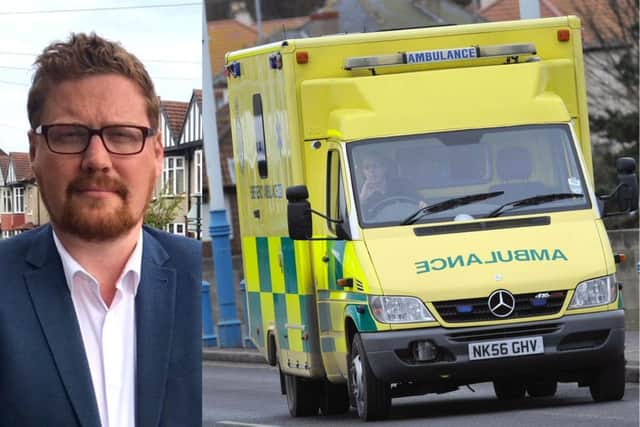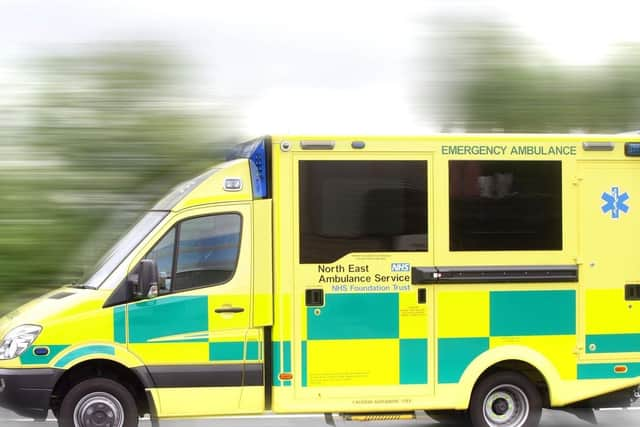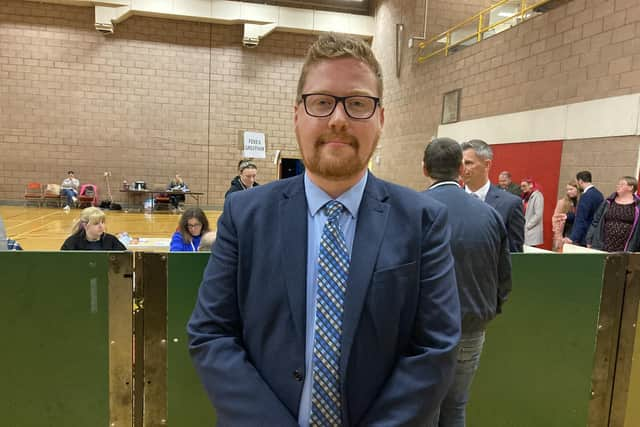Hartlepool Labour candidate calls for urgent action after North East Ambulance Service moves to 'extreme pressure' alert level
and live on Freeview channel 276
The North East Ambulance Service (NEAS) moved to level four of its Resource Escalation Plan (REAP) last week, meaning the service is under “extreme pressure”.
Jonathan Brash, Labour’s parliamentary candidate for Hartlepool, has claimed too many ambulances are having to wait outside hospitals for long periods to hand patients over to emergency departments.
Advertisement
Hide AdAdvertisement
Hide AdAnd he has now written to the health secretary calling for immediate action.


He said: “This is an emergency that is putting lives at risk and we need urgent action to put it right.
"It is an indictment of the Conservative record on the NHS that in Hartlepool we are now relying on charities to attend some incidents because the pressure on our ambulance crews is so great.”
REAP level one and two is the ambulance service’s normal state, but rising to level four indicates a potential for failures.
Advertisement
Hide AdAdvertisement
Hide Ad

Councillor Brash, who also represents Burn Valley ward on Hartlepool Borough Council, said one local paramedic told him there were ‘more queues outside hospitals and more calls coming in than we can cope with’.
Cllr Brash added: “Our paramedics and other NHS services are doing an incredible job in completely unacceptable circumstances but I fear the Conservatives are too focused on their own internal issues and are simply not paying attention.
"They need to pull their finger out and act to resolve this crisis.”
The Department of Health and Social Care has insisted it is ploughing millions into plans to free up hospital beds and reduce A&E waiting times to help ambulances hand over patients more quickly.
Advertisement
Hide AdAdvertisement
Hide Ad

A NEAS spokesperson said it raised its operational status to the highest alert level to protect core services for the most vulnerable patients in the region.
They said: “Level 4 of the Resource Escalation Action Plan (REAP) is designed to maintain an effective and safe operational and clinical response for the UK’s ambulance services so we can continue to play our role in supporting the wider healthcare system at this challenging time.
“Members of the public should only dial 999 for medical emergencies.
"Examples of medical emergencies include chest pain; breathing difficulties; unconsciousness; severe loss of blood; severe burns; choking; fitting; drowning; or severe allergic reaction.”
Advertisement
Hide AdAdvertisement
Hide AdIn non-emergency cases, people are asked to seek help from their GP, pharmacist or local walk-in centre.
Visit www.111.nhs.uk for more information.
A Department of Health and Social Care spokesperson said: “Our Plan For Patients sets out a range of measures to help ease pressures on ambulances, including an extra £500 million to speed up discharge and free up hospital beds, reducing waits in A&E and getting ambulances quickly back out on the road.
"This is alongside NHS plans to rapidly boost capacity and resilience ahead of winter, including increasing the number of NHS 999 and 111 call handlers and creating the equivalent of at least 7,000 more beds.”
NHS England is also investing an additional £150 million in ambulance trusts to help improve response times and £20 million to upgrade the ambulance fleet.
